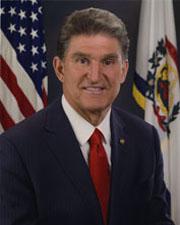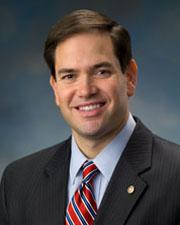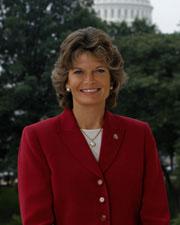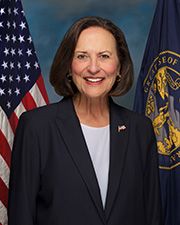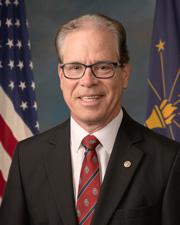0
0
0
A joint resolution providing for congressional disapproval under chapter 8 of title 5, United States Code, of the rule submitted by the Department of the Treasury relating to "Clean Vehicle Credits Under Sections 25E and 30D; Transfer of Credits; Critical Minerals and Battery Components; Foreign Entities of Concern".
5/31/2024, 4:26 PM
Summary of Bill SJRES 87
Bill 118 SJRes 87 is a joint resolution that aims to disapprove of a rule submitted by the Department of the Treasury regarding clean vehicle credits under sections 25E and 30D, transfer of credits, critical minerals and battery components, and foreign entities of concern. The resolution falls under chapter 8 of title 5 of the United States Code, which allows Congress to review and potentially overturn regulations proposed by federal agencies.
The rule in question pertains to the allocation of clean vehicle credits, the transfer of these credits between different entities, and the regulation of critical minerals and battery components used in electric vehicles. Additionally, the rule addresses concerns related to foreign entities that may be involved in the production or distribution of these components.
The purpose of Bill 118 SJRes 87 is to provide Congress with the opportunity to express disapproval of the Department of the Treasury's rule and potentially prevent its implementation. This resolution allows for a thorough review of the proposed regulations and ensures that lawmakers have the final say on whether they should be enacted. Overall, Bill 118 SJRes 87 is a significant piece of legislation that highlights the importance of congressional oversight in the regulatory process. It underscores the role of Congress in ensuring that federal agencies adhere to the will of the people and act in the best interests of the country as a whole.
The rule in question pertains to the allocation of clean vehicle credits, the transfer of these credits between different entities, and the regulation of critical minerals and battery components used in electric vehicles. Additionally, the rule addresses concerns related to foreign entities that may be involved in the production or distribution of these components.
The purpose of Bill 118 SJRes 87 is to provide Congress with the opportunity to express disapproval of the Department of the Treasury's rule and potentially prevent its implementation. This resolution allows for a thorough review of the proposed regulations and ensures that lawmakers have the final say on whether they should be enacted. Overall, Bill 118 SJRes 87 is a significant piece of legislation that highlights the importance of congressional oversight in the regulatory process. It underscores the role of Congress in ensuring that federal agencies adhere to the will of the people and act in the best interests of the country as a whole.
Read the Full Bill
Current Status of Bill SJRES 87
Bill SJRES 87 is currently in the status of Bill Introduced since May 16, 2024. Bill SJRES 87 was introduced during Congress 118 and was introduced to the Senate on May 16, 2024. Bill SJRES 87's most recent activity was Read twice and referred to the Committee on Finance. as of May 16, 2024
Bipartisan Support of Bill SJRES 87
Total Number of Sponsors
1Democrat Sponsors
1Republican Sponsors
0Unaffiliated Sponsors
0Total Number of Cosponsors
10Democrat Cosponsors
2Republican Cosponsors
8Unaffiliated Cosponsors
0Policy Area and Potential Impact of Bill SJRES 87
Primary Policy Focus
Alternate Title(s) of Bill SJRES 87
A joint resolution providing for congressional disapproval under chapter 8 of title 5, United States Code, of the rule submitted by the Department of the Treasury relating to "Clean Vehicle Credits Under Sections 25E and 30D; Transfer of Credits; Critical Minerals and Battery Components; Foreign Entities of Concern".
A joint resolution providing for congressional disapproval under chapter 8 of title 5, United States Code, of the rule submitted by the Department of the Treasury relating to "Clean Vehicle Credits Under Sections 25E and 30D; Transfer of Credits; Critical Minerals and Battery Components; Foreign Entities of Concern".
Comments
Sponsors and Cosponsors of SJRES 87
Latest Bills
Providing for congressional disapproval under chapter 8 of title 5, United States Code, of the rule submitted by the Bureau of Land Management relating to "Central Yukon Record of Decision and Approved Resource Management Plan".
Bill HJRES 106December 12, 2025
Providing for congressional disapproval under chapter 8 of title 5, United States Code, of the rule submitted by the Bureau of Land Management relating to "North Dakota Field Office Record of Decision and Approved Resource Management Plan".
Bill HJRES 105December 12, 2025
Holocaust Expropriated Art Recovery Act of 2025
Bill S 1884December 12, 2025
Providing for congressional disapproval under chapter 8 of title 5, United States Code, of the rule submitted by the Bureau of Land Management relating to "Miles City Field Office Record of Decision and Approved Resource Management Plan Amendment".
Bill HJRES 104December 12, 2025
Enduring Justice for Victims of Trafficking Act
Bill S 2584December 12, 2025
National Defense Authorization Act for Fiscal Year 2026
Bill S 1071December 12, 2025
Technical Corrections to the Northwestern New Mexico Rural Water Projects Act, Taos Pueblo Indian Water Rights Settlement Act, and Aamodt Litigation Settlement Act
Bill S 640December 12, 2025
Department of Defense Appropriations Act, 2026
Bill HR 4016December 12, 2025
End the Fed’s Big Bank Bailout Act
Bill S 2113December 12, 2025
Federal Reserve Transparency Act of 2025
Bill S 2327December 12, 2025
Providing for congressional disapproval under chapter 8 of title 5, United States Code, of the rule submitted by the Department of the Treasury relating to "Clean Vehicle Credits Under Sections 25E and 30D; Transfer of Credits; Critical Minerals and Battery Components; Foreign Entities of Concern".
Bill HJRES 148August 9, 2024
Providing for congressional disapproval under chapter 8 of title 5, United States Code, of the rule submitted by the Department of the Treasury relating to "Clean Vehicle Credits Under Sections 25E and 30D; Transfer of Credits; Critical Minerals and Battery Components; Foreign Entities of Concern".
Bill HJRES 179July 12, 2024
